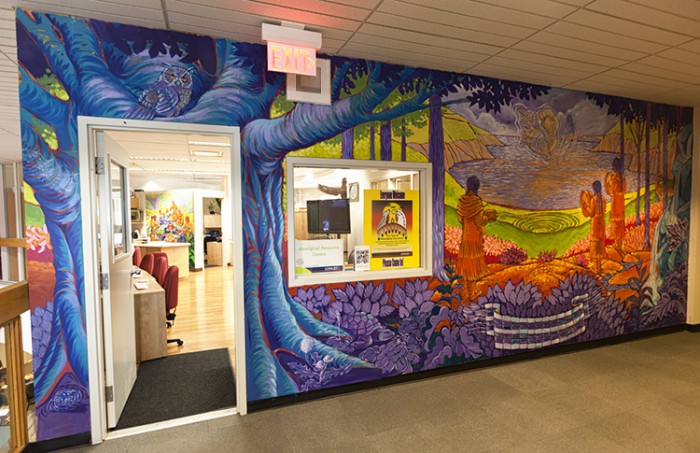By Joseph Carin and Scott Gardner
A Loyalist College’s aboriginal centre outreach worker agrees with the recent Truth and Reconciliation Commission findings released last week saying teachers need more training when it comes to indigenous issues.
Aboriginal Student Centre Research Assistant Tina Storms said the lack of Indigenous content comes as no surprise. She only began to learn in-depth Indigenous history in her first year of post secondary education at Loyalist College.
“They don’t understand [or have] a lack of education in it and not in a bad way because I know when I was in grade school and high school I didn’t learn half the stuff I did my first week here years ago,” she said.
Storms is an active participant and organizer of Indigenous community outreach events, voicing the deep involvement of the Aboriginal Student Centre in educating the college and the community at large.
“We have aboriginal awareness, cultural days, we have craft days [which on] certain days we will have different crafts. Anybody can do them and it’s free. Its all about letting the community here at Loyalist know what the community is like down the street from us,” she said.
Aboriginal Awareness Day, cultural day, craft days, and a special event at CFB Trenton are a few of the public education events the centre has held recently.
Storms’ suggests both elementary and high school teachers attend these informative events in the future to better educate themselves. Loyalist plays an important role in offering them opportunities.
But it is not just elementary and high schools that are affected. Colleges also play a role.
There are eight colleges that offer 29 Indigenous related programs, according to OntarioColleges.ca. Courses such as Aboriginal Education: Community and Social Development, Aboriginal Community Advocacy, and Native Child & Family Services are offered across the province by colleges such as Confederation, Georgian, among others.
Storms’ believes only through a proper understanding of the plights and struggles of the indigenous population can reconciliation begin.
“When you are dealing with a community and you don’t know what they are about, just like the teachers dealing with the students, do you really know that community? And in turn, do you really know that student,” she said.
In the wake of the Truth and Reconciliation Commission of Canada’s report has been released by the People for Education, an independent education advocacy group, emphasizing the commission’s report on the lack of Indigenous content in the elementary and high school curriculums.
The report entitled ‘Ontario’s Schools: The Gap Between Policy and Reality’ points out the importance of public school teachers and their distribution of indigenous history and affairs.
The report states 29 per cent of elementary schools and 47 per cent offer training on indigenous issues to teachers.
Only a week ago the Truth and Reconciliation Commission of Canada called upon provincial Governments to ensure all students learn of the past and current struggles of the First Nations, Metis, and Inuit.
Teachers for the most part are uncomfortable teaching Indigenous culture and issues say the People for Education; a statement that Storms shares.
